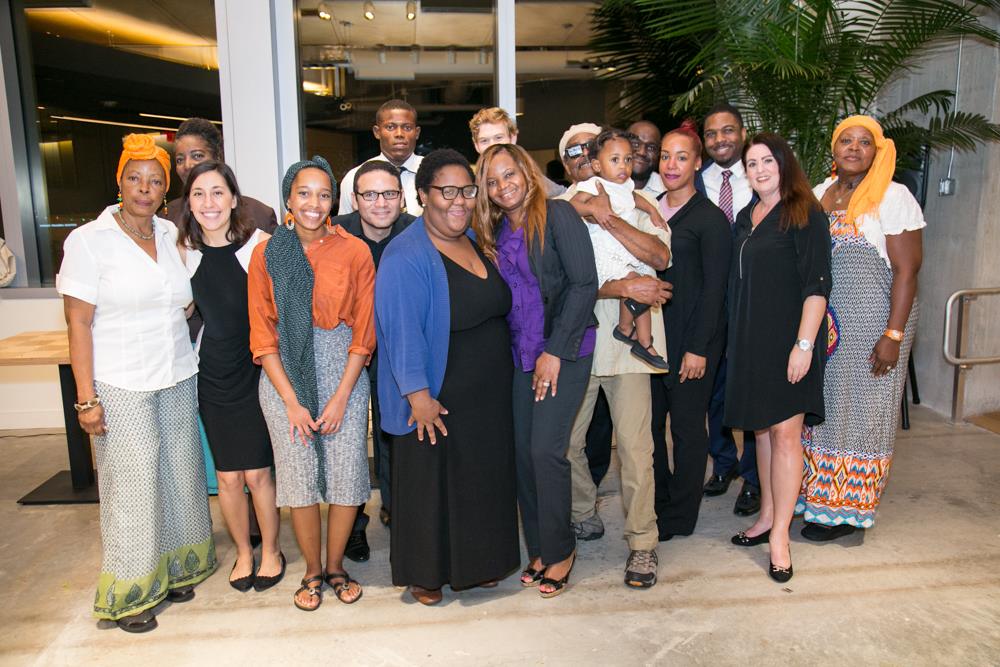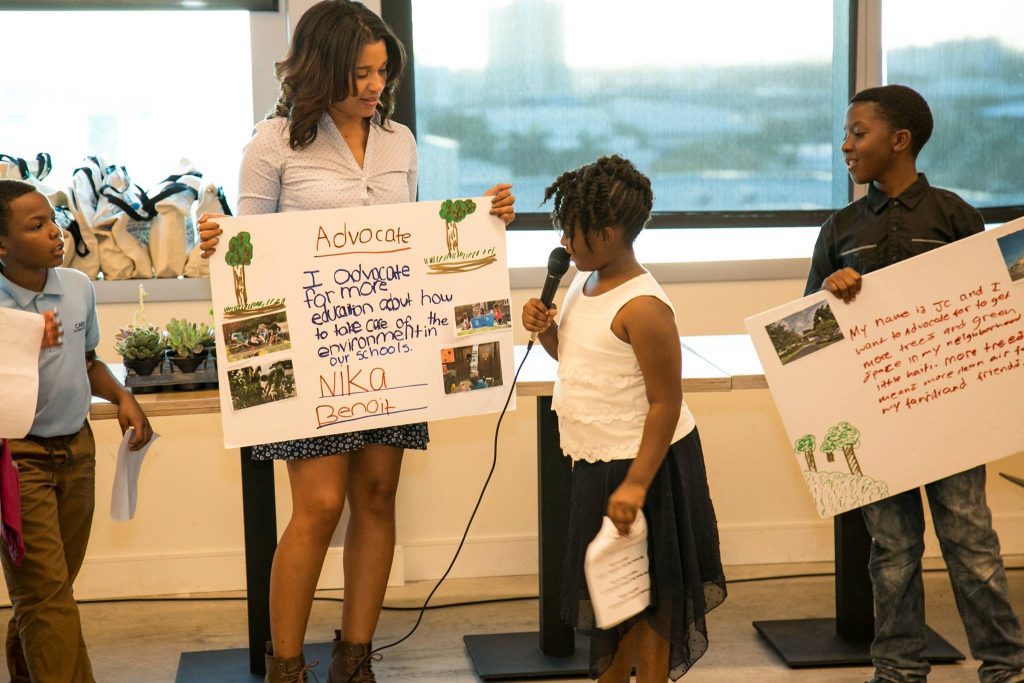City: Phoenix
Country / US State / US Territory: Arizona
Type of Solution: Volunteer / Community Group
Climate Impact: Extreme Temperatures and Urban Heat Island Effect; Air Quality; Extreme Precipitation and Flooding
Social Value Created: Social Justice and Equity for Vulnerable Communities; Community Engagement; Public Education; Diverse Transportation; Public Health and Safety; Urban Beautification; Community Wellbeing and Quality of Life
The City of Phoenix is participating in the national Resilience AmeriCorps program. The local program is called Resilient PHX. Volunteers assist low-income communities with projects to build community capacity. Resilient PHX has already completed a number of projects, such as Grandview Message Boards, Grand Avenue Curb Cut/Rain Garden, and Triangle Tree Planting.
Three message boards were installed in the Grandview Neighborhood to improve communication of climate risks, such as the risks of extreme heat in vulnerable communities, specifically low-income residents, elderly residents, and renters.
Another project was the Grand Avenue Curb Cut/Rain Garden. The curb cut/rain garden improves stormwater management to prevent flooding risks during heavy precipitation events. In addition to improved stormwater management, the project created more greenspace for residents and improved aesthetics, walkability, and shade coverage.
Lastly, the Triangle Tree Planting project was a community outreach program that engaged residents in tree planting and taught residents tree maintenance in an effort to mitigate extreme heat and the heat island effect. Trees increase shade coverage, which also contributes the the walkability of the area.
Sources: City of Phoenix. (n.d.). Resilient PHX. Retrieved from https://www.phoenix.gov/volunteer/resilient-phx.



